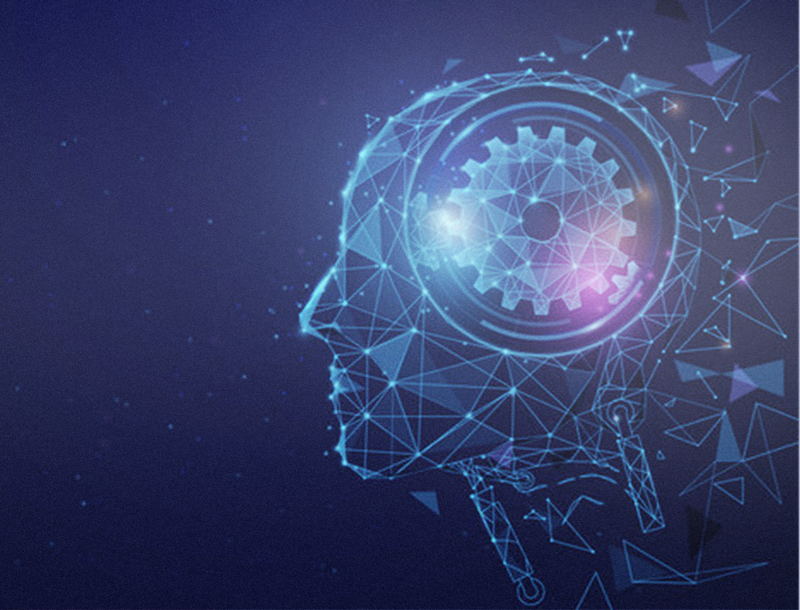A few years ago, most organizations saw AI as an experiment. But COVID-19 pandemic has changed the game and eventually accelerated AI’s shift. In 2020, companies all around the globe were forced to implement innovative solutions to survive the crisis. During that time, many businesses realized that AI is one of the most effective tools they can use to overcome emerging challenges and achieve success in the long run. This article will discuss the real value of AI and the key benefits it provides.
Revenue Growth and Cost Reduction
Business is all about making money. So when we talk about the “business value” of AI, we should talk about money, revenue, and profit, in the first place.
Companies from different industries use AI for various purposes. While some companies leverage AI to improve data security and detect frauds, others use it for personalized marketing and advanced analytics. According to IBM’s study, AI incorporation is associated with an increase in direct revenue on average by 6.3% and a reduction of operational costs.
Basically, companies of any size and type can leverage AI to achieve higher profit margins. The only challenge here is to accurately identify the problem that should be solved and set a specific goal that should be attained. Let’s take a look at the following example.
IFFCO Tokio and Cost Optimization
IFFCO Tokio, an India-based insurance company, had an ineffective claims handling process. According to the survey, 30% of customers were dissatisfied with the claims' assessment process and outcomes. Typically, customers had to wait up to four hours to get their claims processed.
In 2019, the company leveraged cognitive image analytics that enables an instant assessment (the system automatically defines the type and extent of vehicle damage). As a result, processing costs dropped by 30%, and processing time was reduced to 15 minutes. Ultimately, such changes positively influenced customer experience.
Photo by John Schnobrich on Unsplash
In most cases, the use of AI helps not only gain higher profit but also facilitates further business growth. Like in the case of IFFCO Tokio, improved customer satisfaction leads to higher customer retention and higher sales in both the short and long run.
Demand Forecasting & Business Process Optimization
Every company strives to make better use of resources (including material, financial, and human ones) and streamline work processes. But in real life, it’s rather challenging to accomplish this task. Since companies operate in an ever-changing business environment, they struggle to adapt their strategies to new market conditions in a timely manner.
AI offers solutions that address this challenge. Let’s consider an illustrative example.
Snack Company and Demand Forecasting
During the COVID-19 outbreak, a world-famous snack company faced a problem with the evaluation of demand and streamlining the supply chain processes. To overcome the problem, the brand incorporated an AI-powered demand forecasting system. The system analyzed different parameters, from regional virus outbreaks and economic stress to local regulations and transactional supply chain data.
How did that help the company? Managers got accurate product shipment forecasts and, as a result, made well-informed decisions about what products to produce and where to ship them. It allowed the company to optimize its supply chain network and significantly cut shipment costs.
Photo by CHUTTERSNAP on Unsplash
In contrast to traditional software, AI-powered platforms can provide the most accurate demand forecasting. AI offers the ultimate solution for production and supply chain optimization and allows manufacturers to meet demand spikes.
Advanced Strategic Planning
While many companies use AI solely to optimize daily routine tasks, some corporations leverage AI solutions for strategic planning. Experts expect that in the coming years, more brands will opt for AI when making important decisions like what market to enter and what product to design.
Here is another example of AI implementation.
Domino’s Pizza and Strategic Planning
Domino’s Pizza, the world’s largest pizza retailer, uses AI and machine learning for multiple purposes:
-
An AI-powered labor scheduling platform forecasts the in-store labor required
-
Sales analytic platform monitors the performance of more than 14,800 stores in real-time mode
-
The automatic system creates efficient routes for drivers to streamline vehicle routing and decrease delivery costs
-
The system identifies the perfect locations for building new stores
AI simplifies and facilitates the work not only of regular employees like delivery drivers and cashiers, but also of top managers. AI and machine learning algorithms prompt managers to enforce changes in business, for instance, to open new stores in specified locations. Executives are served with all data they need to build a strategy for long-term wealth creation.
Photo by GeoJango Maps on Unsplash
Wrapping up
AI is not a future. It’s here and now, and businesses need to embrace it. AI is essential for companies that strive to keep up with modern trends and thrive in rapidly changing markets. There is no doubt that those enterprises that will be the first AI-adopters will gain a competitive advantage in the industry.

